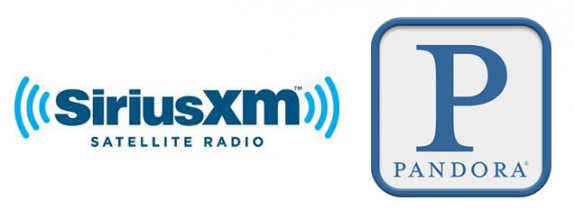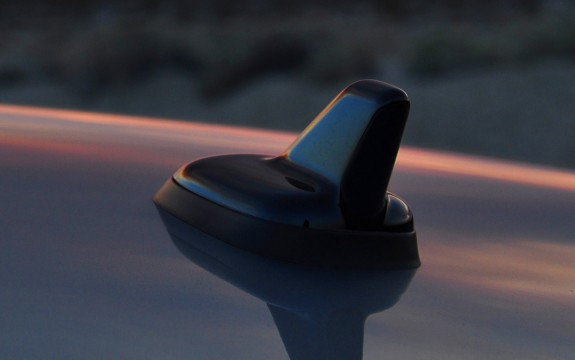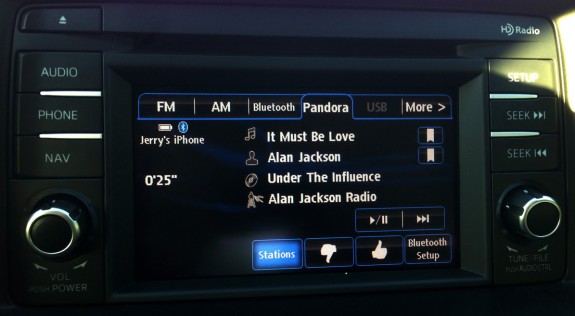Stupid Technology: SiriusXM vs. Pandora
SiriusXM has been on a rough ride in the past decade. Despite launching as separate entities, economic factors made it clear that the market could not support both of them. Thus, Sirius and XM decided to merge into one company, and that’s exactly what they did on November 12, 2008. Since then, car manufacturers who were waiting to see who would win the war have jumped in head first. Nearly every car and light truck manufacturer in the United States offers SiriusXM Radio today. I finally gave it a try with the 3-month trial on my 2013 VW Passat, and left unimpressed. That got me thinking, is there a better alternative?
Flawed
Yes, there absolutely is a better way to get YOUR preferred music into the car wirelessly. You see, while SiriusXM is impressive in its ability to offer “uninterrupted” radio across the nation, it has many flaws. When I first gave it a try, it didn’t take long to notice that the sound quality was horrible. I thought it was just me, but I asked around and heard similar complaints from Honda and Toyota owners. Second, the reception is absolutely terrible. Overpasses, buildings, and even overhead highway signage could cut reception. I understand why it might lose signal, but traditional radio has never been this picky and this choppy, so I still find the reception issue unacceptable. Third, the station choice will always be limited. I was never able to find the perfect country station, so being able to listen to it cross country isn’t a boon at all in this case. Finally, I would have to pay massive amounts of money for the service – as high as $21.49 a month for Sirius Premier with Internet Radio. In the post-2008 economy, that is a pretty steep bill considering that FM HD radio is free. If you’re debating whether to go for an option package, accessory, or even the next trim level just for satellite radio, forget it. It ain’t worth the money.
Hedging bets
Then, around 2010, some major carmakers got on a craze about adding app support into their cars. The audio system in the car basically connects to your smartphone, then allows you to open some supported apps. The most popular among them seems to be Pandora. The app opens and uses your phone’s data to stream music, outputs it through your cars speakers, and also shows the artist and song title on your in-car display. You can use the car’s steering wheel or head unit controls to skip songs, change volume, and stop playback.
At first, I thought this was a stupid idea – knowing the quick life cycle of most tech items, the thought of owning a 10 year old car that supports a non-existent app seemed dumb. But when I really analyzed the situation, I realized that Pandora is a far preferable solution to satellite radio. Not only does it allow you to pick your own music by upvoting or downvoting the song that’s currently playing (so Pandora can learn your musical taste and adjust accordingly), but it also lets you skip a certain number of songs every hour – SiriusXM can offer neither benefit! Most cities and even rural highways have decent cell coverage, so the data and music keep on coming. The sound quality seems acceptable, and the service is free to cheap – their most expensive plan is $36/year or $3.99/month, and that includes zero ads. You decide, 2 months of Sirius or 1 year of Pandora? I’d pick the latter. Of course, that is assuming you have enough data…
Redemption?
(Note: the companies listed below are used just for example. ”Toyota” could easily be replaced with Ford or Honda, and “Pandora” could easily be exchanged with Spotify. SiriusXM, however, can’t be interchanged – there are no other satellite radio providers in the United States.)
Which brings me to my final point. When you sign a contract for a cell phone plan, the major providers have a perk that says you can call anyone in their network, and it won’t count against your minutes. Thus, I could use my Verizon phone to call anyone on the Verizon network, and I wouldn’t be using any of my 700 monthly minute allowance. Pandora, carmakers, and cell networks alike should collaborate and find a way to do this for Pandora streaming. Data on smartphones is precious, and streaming music in the car takes a lot of it. Pandora, Toyota (the biggest carmaker with Pandora integration), and Verizon should get together and make a plan – anybody with a Verizon phone that’s connected to a Toyota car can play Pandora without digging into their 2GB monthly data allowance. It’s the same concept as mobile to mobile minutes, just with Pandora and data allowances. And, unlike satellite radio which requires launching big stuff into outer space, a carmaker could scale this concept across most countries with cell networks quickly and easily, without spending massive sums of money.
Some people pointed out that this would cause major traffic jams on the cell networks, and that it would cost an arm and a leg for everybody involved. I disagree, let’s think about this. In urban areas, commuters may want to listen to traffic and Pandora doesn’t offer this. Plus, there are plenty of local radio stations to listen to anyway. And, how long can you be in a car in an urban environment? If you’re in downtown LA, you’re usually not out for a Sunday drive – you’re trying to get somewhere in a hurry. In rural areas, data traffic is already light and coverage along most highways seem very good.
Regarding cost, if there were three parties helping to foot the bill, the Pandora user wouldn’t have to go broke to pay for the unlimited data service. Toyota and Verizon both have an incentive to chip in, so that they can lure customers. Pandora can monetize this by charging up to $15-20 a month to the end user. Some of that amount can go to Verizon, which can sell the data to Pandora at wholesale rates – cheaper than a consumer would pay for the same service. Even at $15-20 a month, it would still be competitive with SiriusXM prices, and it would still offer the advantages of skipping music and getting to custom tailor your song selection. So, people in the industry…why isn’t this done yet? Spotify, Rdio, are you listening? Get moving!




